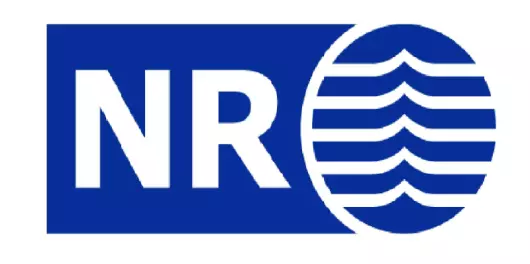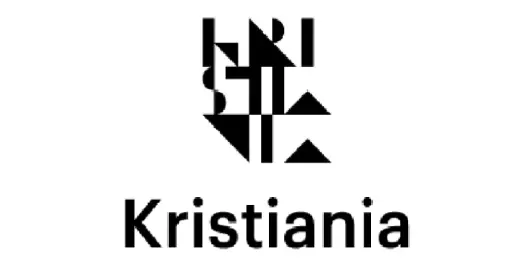Ledig stilling på Universitetet i Oslo
Blindern og Urbygningen (Foto: Wikimedia og Colourbox)
PhD Research Fellow in Educational Measurement
Deadline: 31.05.2021
Universitetet i Oslo
The University of Oslo is Norway’s oldest and highest ranked educational and research institution, with 28 000 students and 7000 employees. With its broad range of academic disciplines and internationally recognised research communities, UiO is an important contributor to society.
The Centre for Educational Measurement at the University of Oslo (CEMO) provides a stimulating research environment by bringing internationally renowned substantive and methodological experts together. Research at CEMO combines basic research and applications of advanced measurement techniques to solve core educational problems. CEMO also contributes to the development of measurement competence through teaching and outreach. The centre is part of a broad international network and manages several externally funded research grants.
Job description
Applications are invited for a full-time, three-year position as PhD Research Fellow at the Centre for Educational Measurement (CEMO), Faculty of Educational Sciences, University of Oslo. The contract can be extended by up to one year, conditional on the assignment of teaching, and other compulsory duties. The preferred starting date is fall 2021.
CEMO provides a stimulating research environment by bringing together internationally renowned experts in methodological and substantive research fields to solve core educational problems. The Centre also contributes to the development of measurement competence through teaching and outreach and offers a Master of Science program in Measurement, Assessment and Evaluation. The Centre is part of a broad international network and comprises about 30 employees from 15 countries. For more information about CEMO, see this website.
About the position
The PhD position is related to research examining cross-national trends in equality and equity in educational outcomes. Specifically, we are interested in analyzing the development of disparities in reading, mathematics, and science skills related to gender, socio-economic background, teaching and school quality over time by using data from international large-scale assessments (e.g., TIMSS) since the 1960s. Some countries, such as Sweden or the United States, have participated in almost all cycles. Other countries, such as Australia or England, have participated in the majority of the assessments. Therefore, rich data from a broad range of countries is available that allow examining country-specific or cross-national developments, for example with respect to changes before and after a larger curriculum reform.
Research tasks related to the position announced are:
1) Theory-based development of indicators of equality and equity in educational outcomes appropriate for ILSA data
2) Linking these indicators over time by applying item-response theory
3) Validating the linking procedure, among others by applying different classical and modern approaches
4) Examining cross-national or country-specific trends in equality and equity in educational outcomes using multilevel modelling
There are only very few studies (Chmielewski, 2019; Salmela-Aro & Chmielewski, 2019; Strietholt & Rosén, 2016) that have utilized the richness of the many ILSAs carried out since 1964 for examining cross-national or country-specific research questions. The studies revealed among others how fruitful it is to link the reading and mathematics tests from recent and older studies conducted by the International Association for the Evaluation of Educational Achievement (IEA). Within the OCCAM European Training Network, additional attempts have been made to link scales measuring non-cognitive constructs (e.g., attitudes) over time (Majoros, Rosén, Johansson, & Gustafsson, 2019).
More about the position
We welcome applications of candidates with a strong background in educational, sociological, economic or psychological research/measurement. CEMO has several research projects related to international large-scale assessments:
https://www.uv.uio.no/cemo/english/research/projects/occam/index.html
https://www.uv.uio.no/cemo/english/research/projects/embracing-heterogeneity/index.html
https://www.uv.uio.no/cemo/english/research/projects/milsa/index.html
There are also many international collaboration opportunities, in particular with the research team based at the University of Gothenburg where much of the linked ILSA database has been developed.
The successful candidate will thus become a member of a larger research group.
The research fellow will take part in the Faculty’s approved PhD program and is expected to complete his/her project within the fellowship period.
The main purpose of the fellowship is research training leading to the successful completion of a PhD degree.
The successful candidate will develop skills in quantitative methodology, statistical programming, and scientific communication during their PhD period.
Qualification requirements
- Applicants must hold a 2-year Master's degree (120 ECTS, including a thesis of at least 30 ECTS) or an equivalent qualification in education, psychology, social sciences, statistics or similar fields related to educational measurement. Candidates must have submitted their Master thesis when they apply.
- Fluent oral and written communication skills in English
By the time of appointment, the successful candidate must also satisfy the requirements of admission to the PhD program of the Faculty of Educational Sciences. These include minimum grade B (ECTS grading scale or equivalent) on the Master’s thesis, and good grades on the overall degree. Please visit this website for more information about the PhD program at the Faculty.
In the assessment of applications, emphasis will be put on:
- The applicants’ academic aptitude for completing the research training program
- The writing sample, which must be submitted with the application (see information under the paragraph “how to apply”)
- Training and experience with quantitative research methods and data-analysis
- The applicant’s personal suitability and motivation for the post, including his/her ability to collaborate
- Other qualifications that meet the objectives of the position
We offer
- Salary from NOK 482 200- 526 000 per annum depending on qualifications in a position as a PhD Research fellow (position code 1017). Research fellows are normally allocated to pay grade 54, NOK 482 200, on appointment. The position is remunerated according to the Norwegian State salary scale.
- PhD candidates receive full tuition, a partial fee waiver, and five weeks of paid vacations. PhD candidates are also entitled to apply for subsidized housing through the University of Oslo, subject to availability.
- The University of Oslo offers attractive welfare benefits and a generous pension agreement with the Norwegian Public Service Pension Fund, in addition to Oslo’s family-friendly environment with its rich opportunities for culture and outdoor activities.
How to apply
The application must be submitted electronically and must include:
- Cover letter including a statement of motivation
- CV (summarizing education, previous positions and other qualifying experience)
- Master thesis and other selected works suited to demonstrate the applicant’s fit to the position announced, in particular documentation of training and experience with quantitative research methods and data-analysis (a strong record here will give a distinct advantage)
- An extended abstract in which the PhD candidate demonstrates his/her understanding of the research topic, key concepts, potential research questions and methodological approaches (3-4 pages, 1.15 line spacing, 12pt font size, 1-inch margins)
- Documentation of English proficiency (Requirements: in the form of an academic degree from an English language university or an approved English proficiency test with a minimum required score. For guidance, see this website).
- Documentation of earlier education (e.g., diplomas, grade transcripts, course descriptions)
- 1-2 references with contact information (e.g., Master thesis supervisor(s))
Foreign applicants are advised to attach an explanation of their University's grading system. Please note that all documents should be in English (or a Scandinavian language). Incomplete applications will, under normal circumstances, not be assessed. As a rule, interviews will be conducted as part of the application process. Successful candidates need to present original diplomas and grade transcripts from previous courses of study before they can sign the contract.
Formal regulations
Please see the guidelines and regulations for appointments to Research Fellowships at the University of Oslo.
No one can be appointed for more than one PhD Research Fellowship period at the University of Oslo.
According to the Norwegian Freedom of Information Act (Offentleglova) information about the applicant may be included in the public applicant list, also in cases where the applicant has requested non-disclosure.
The appointment may be shortened/given a more limited scope within the framework of the applicable guidelines on account of any previous employment in academic positions.
The University of Oslo has an agreement for all employees, aiming to secure rights to research results etc.
Inclusion and diversity are a strength. The University of Oslo has a personnel policy objective of achieving a balanced gender composition. We also want to have employees with diverse expertise, combinations of subjects, life experience and perspectives. We will make adjustments for employees who require this.
If there are qualified applicants with special needs, gaps in their CVs or immigrant backgrounds, we will invite at least one applicant in each of these groups to an interview.
Contact information
Apply for position















